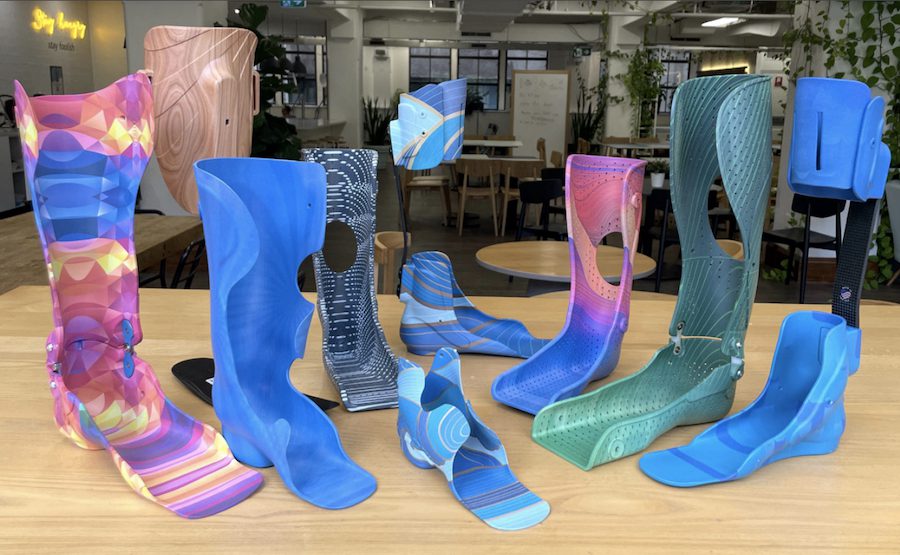The Northern Rivers Orthotic Project is funded by the Newcastle Permanent Charitable Fund. It provides localised orthotic care to children with disability who require orthoses in the Northern Rivers region of NSW. Northcott, Ability Made and Northcott Innovation are piloting the service for 12 months.
The project brings together highly skilled orthotists and Northern Rivers allied health professionals. Together they will use the latest in telehealth and digital technologies to assess and fit children with disability for specialised orthotic devices such as Ankle Foot Orthoses (AFOs), significantly reducing Northern Rivers families’ expenses and time while still enabling high quality orthotic care.
Children aged 18 and under who:
- have disability and who already wear customised lower limb orthoses such as AFOs
- live in Northern NSW and can travel to Northcott’s Ballina office.
A number of orthotic devices can be prescribed and produced through this pilot. Examples include the following, but the orthotist will discuss your child’s needs and options with you during assessment:
- AFOs
- Supra Malleolar Orthoses (SMOs)
- UCBLs (University of California Berkeley Laboratory)
- bed resting AFOs
If you want to request this service for your child, please call or email Karen Paskins at the Northcott Ballina office:
P: 02 6620 6600
E: [email protected]
This service can be funded through your child’s NDIS plan, or – for the first children involved – by the project. Contact Karen to find out how.
You will need to express your interest for your child to receive this service (through Karen via the contact details provided). If you have an appointment, you will need to travel to:
Northcott Ballina
64 Crane St
Ballina NSW 2478
This project uses the latest in digital technologies and the scanning process should be hands-free so should not be distressing for your child.
Four face-to-face appointments in Ballina will be required. One for the orthotics assessment, one for scanning, one to fit the orthoses (called a fitment) and one for review.
The orthotist seeing your child will speak to you on the phone before your first appointment. The orthotics assessment, scanning and fitment appointments should take between one and two hours. The review appointment should take less than one hour.
The process from initial assessment to final review should take around 10 weeks.
At your child’s assessment appointment, a 3D scan of your child’s foot, ankle and lower limb will be taken. The orthotist then uses software, and the scan, to design customised orthosis that meets their postural and mobility needs. That modified scan is then sent to a 3D printer which makes the orthoses. The orthotist will then check and modify the orthotic to make sure it meets your child’s needs. It is then sent to Ballina ready for your child’s fitment appointment. Videos and additional information links about this process can be provided if you need more information.
A skilled and qualified orthotist will conduct the assessment and fitment appointments via a telehealth appointment. They will be assisted by skilled, specifically trained, local allied health professionals who will be in Ballina with you and your child.
Yes of course! Any support person for the child can attend the appointment. Just let us know when you are finalising the appointment.
No. If orthotic services are in your child’s NDIS plan, you do not need a referral.



